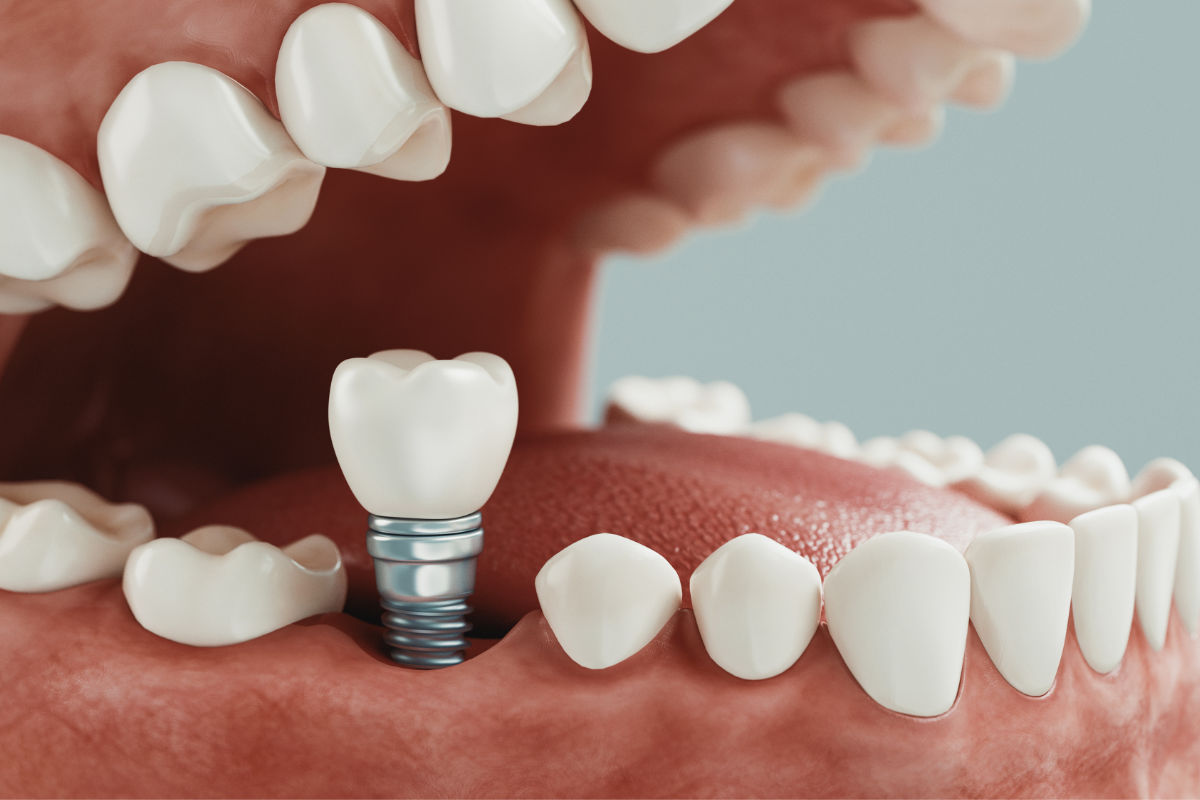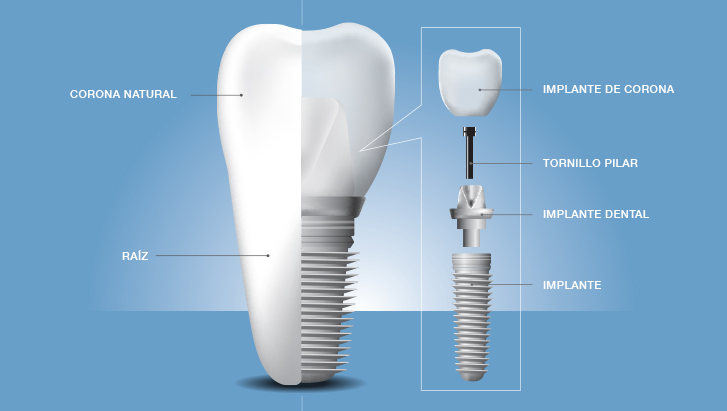
HOW TO CHOOSE THE MATERIAL FOR YOUR DENTAL IMPLANT?
Dental implant visits
One of the most common reasons for visits to the dentist is for dental implants.
When the reconstruction of a tooth is not possible and extraction becomes necessary, or when one or more teeth have been lost, implants are a safe and durable solution to replace the original teeth.
It is very important to bear in mind that dental implants not only serve an aesthetic function, but are also functional: they help to maintain a correct bite and good oral health.
Implants can last a lifetime if properly cared for. Care includes meticulous dental hygiene, with emphasis on hard-to-reach areas such as the space between the crown and the abutment to which the prosthesis is attached, as well as regular visits to the dentist.


How are dental implants formed?
Dental implants are made up of 3 parts.
- The screw-shaped implant that is inserted into the gum space to replace the missing tooth, which is attached to the bone. This type of screw is usually made of titanium.
- An attachment is placed on top of the screw to serve as an abutment or post to support the crown.
- Finally the crown is placed on the abutment resembling the natural tooth.
Most of these crowns are made of porcelain. However, the highest quality materials are Zirconia or Zirconium and Disilicate. Zirconium dental crowns are made to the highest quality standards, are virtually unbreakable, stain and discolouration resistant. So they look exactly like a natural tooth.
What is the right material for dental implants?
Currently, the vast majority of dental implants on the market are made of titanium. This material is ideal for two main reasons: long-term success and high biocompatibility.
However, there are also zirconium dental implants, a non-metallic option.
At Nakeji Dental we guide you through the types of Dental Implants.

Metal-Porcelain
The main advantage is its hardness, it is ideal for molars in patients suffering from bruxism.
In fixed metal-porcelain dentures, the interior is made of metal and covered with porcelain in order to mimic the natural tooth. However, due to the metal core, they have little translucency.
When small gingival recessions occur, they have the disadvantage of leaving a small metal arch visible at the gingival margin (or crown-gum junction edge).
Metal-porcelain dentures are more economical than zirconium dentures.
As they contain metal, they may cause allergic reactions due to the type of alloy (cobalt-chromium or nickel-chromium).

Zirconia
Zirconium is a ceramic material of extreme hardness and resistance that was already used for the manufacture of brackets, pins or stumps to be placed after endodontics, as well as for the manufacture of bridges and dental crowns. Its white colour is very similar to that of the original dental pieces and it has an extraordinary durability as long as optimal hygiene conditions are maintained, to the point that many dentists offer a lifetime guarantee with these implants.
Among the advantages of zirconium are that it prevents the formation of bacterial plaque around it, it resists acid corrosion very well and does not cause problems with temperature changes. These implants are mainly used in patients who are allergic to titanium.


We are a team of Dentists Specialists in Tijuana, with a team committed to providing you with the best Dental treatment.
Closer to you
Gallery







